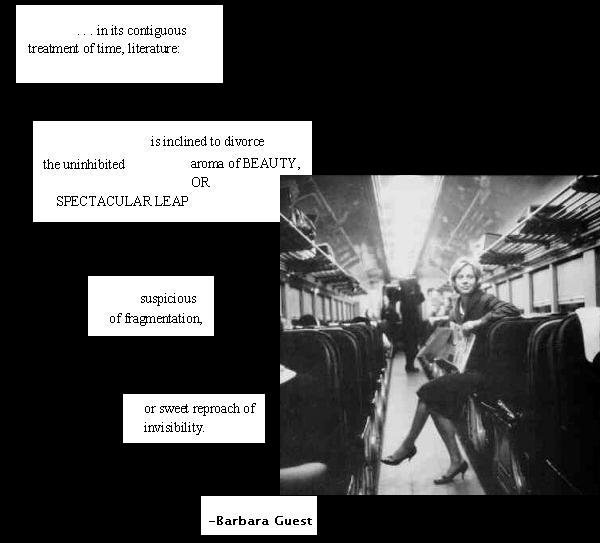Church of the Light by Tadao Ando

Thursday, August 9, 2007
I'm Back From Where I Was
...
...
...
...No, I got nothing right now. I hope that no one has been overly stressed out by their summer quarter.
May God give us grace, whether we want it or not.
Monday, June 11, 2007
trying something out
Friday, June 1, 2007
Mark Danner Commencement Address
The above comes from the ending of Mark Danner's Commencement Address that he gave to the Rhetoric students at UC Berkeley on May 10. In case you don't know, Danner is an author, journalist and Professor of Journalism at Berkeley. As we come to the end of our workshop, I think you ought to read this speech at http://www.alternet.org.
Poetry or performance?
We're all going,
but never knowing … each other.
I've seen a thousand faces
know about a hundred names or so,
rarely do I say more than hi to them.
Can't seem to catch some time
to read into their soul.
Guess fear reminds me
of the pain that cost too much.
My friends are always changing,
while I'm here standing
wondering
where everyone went
Things start to feel right,
but it only becomes temporary.
What once bonds humanity together
seems to be the reason I'm arguing.
Using the love I have for people
as my dagger and as my defense!
While I read on how we must cease life
I question in why I must exist.
What's going through your minds?
while I'm trying hard to confine
in my own space
in this own little world of mine
Don't say you know me.
My reality can not be inhabited on this earth.
Too many willing to kill a dreamer.
I know, because I watch the death
to some of my hopes
even poisoned some of my own wishes.
My thoughts are looked with opens eyes
with pupils that contain no light.
I am undefined
and my soul still
yearns to be written.
I'm always going
never knowing
things about you.
I’m always going
never knowing you.
I’m going
not knowing you.
Stop!
Let me inhale your presence.
Let me exhale my being.
Wednesday, May 30, 2007
M' belle Non-Oblique, or One View of 27, rue des Fleurs
—Gertrude Stein,
The Making of Americans
Since no one asked my opinion, I’ll just go ahead and say that with reservations I agree with Kassie’s notion posted elsewhere that “art” in fact must, yes, be “label-less,” but I think there’s an issue here of good faith that we probably should explore; that is, as long as an artist proceeds in good faith, then hir art must matter. Silliman writes in his 1981 essay, “The Political Economy of Poetry”:
Poetry in America reflects struggle carried out, unfortunately, in an unorganized and often individualistic manner. This struggle is as much one between audiences as it is between poets (or, to be precise, it is one between social formations, including, but never limited to, economic classes, from which audiences are composed around individual authors). (Goia, Mason and Schoerke 413)
The trouble thus still arises these many years later out of reading, the relationship, more precisely, of reader to text and writer. As audience members we have a limited amount of time. Thus, we have to decide for ourselves what is/is not written in good faith and what we will/will not consume. Given this struggle it seems to me, first, worthwhile for an audience to be invited by a particular text into the role of maker (as is the artist) to collaborate in the process of the thing’s making (for we can at least marginally check our own will toward good faith); second, since readers simply haven’t got time to read/experience everything, an audience member needs to start making some choices. Fire up the cannons, boys! A text which, for example, either supposedly rejects the status quo out of hand with some sort of dashed off, say, “punk” tone of dismissal likely isn’t interesting to me as a reader (nor, certainly, is one which simply reiterates the status quo with wit and pretty rhyme) for both serve in the end to maintain stricture in the political structure.
While I believe their existence is most unfortunate for such objects are either ignored by most or serve to lull a greater audience into a false sense of calm, I’m glad nevertheless that such objects are allowed to exist despite the probability that even if naively, accidentally, such texts likely on at least some level are not written in good faith. This paradox so striking is probably unmatched anywhere else in American experience except perhaps in the viewing of television, for the false sense of peace and safety we feel after sitting back and watching “Deal or No Deal?” causes us to forget—though perhaps “naturally” and without ill will—that things on our planet, still, operate on a practically impossible tilt. Look out the window! Unwinding the bandages from the wound of amnesia, if only for moments, the news networks on their first rotation this morning made a claim that while all eyes were averted over the last decade Russia has manufactured and now tested a missile that could end our decades-long lunch break unhappily, quite. ...a top 40s smash generated by a computer program.
It seems to me in the end that an important role of art is to mirror and to agitate, to expose, to shatter. A responsible artist, one who does not simply operate in a delusional world of self-aggrandizement and pity, knows that, in the words of Louis Althusser:
…ideology “acts” or “functions” in such a way that it “recruits” subjects among the individuals (it recruits them all), or “transforms” the individuals into subjects (it transforms them all) by that very precise operation which I have called interpellation or hailing, and which can be imagined along the lines of the most commonplace everyday police (or other) hailing: “Hey, you there!” (“Reproduction”)
Any poem worthy of "our" attention welcomes difficulty as savagely as a lover’s embrace. A poet ought know this fact as a kiss, deeply; ought holler in a grammar complex madly made to reveal the parts. Tautological thought teaches every possible separation we shoulder against. Village populations starve, whales beach themselves, nameless soldiers tote rifles and rape children. Why vacuum the house? When a man on a motorcycle speeds through a four-way in an instant a pickup takes him out of the intersection by the pound, his brain having leapt from his skull to leak gloriously atomized upon the pavement—grey upon grey punctuated by rose—aspects collide a brave foolery. In good faith, listen: Is that poetry sliding down the rear-view? Paris.
Tonight, on the brink of the sky, in an area we call “Now,” a planet will collapse in on itself to become a star that nothing comprehends ever after. Generations, nothing. What this is/is what this is. Poems built somehow of anything other than such elemental understandings of history display on-screen the labels, in one way or another, of either Wastefully Idiotic Solipsism or Romanticist Falsehood—
dual apartments rent en masse
to address beyond
tears, throw down a challenge
lodged such measures. The monikers
lighting up the power grid.
Work Cited
Althusser, Louis. “On the Reproduction of the Conditions of Production.” Lenin and Philosophy and Other Essays. Tr. Ben Brewster. New York: Monthly Review Press, 1971 http://www.marxists.org/reference/archive/althusser/1970/ideology.htm.
Silliman, Ron. “The Political Economy of Poetry.” (1981). 20th Century American Poetics: Poets on the Art of Poetry. Eds. Dana Goia, David Mason, and Meg Schoerke. New York: McGraw Hill, 2004. 405-13.
Tuesday, May 29, 2007
Lissitzky : Superior, really?
Superiority to what? That word is usually used in comparison to something else. Is it implying superiority to God or the heavens? Can that comment be made considering we really don’t know much about this higher being man’s being compared to? This act of “tearing down” doesn’t necessarily mean he’s superior but just progressive, if that!
Wednesday, May 23, 2007
...with just a touch of Jack Spicer
Mirror makers know the secret--one does not make a mrror to resemble a person, one brings a person to the mirror.
---
Break
Your poem
Like you would cut a grapefuit
Make
It go to sleep for you
And each line (There is no Pacific Ocean) And make each line
Cut itself. Like seaweed thrown
Against the pier.
---
Things fit together. We know that--it is the principle of magic. Two inconsequential things can combine together to become a consequence. This is true of poems, too. A poem is never to be judged by itself alone. A poem is never by itself alone.
This is the most important letter that you will ever receive.
Love,
Jack
---
But you will say, we loved
And some parts of us loved
And the rest will remain
Two persons. Yes,
Poetry ends like a rope.


